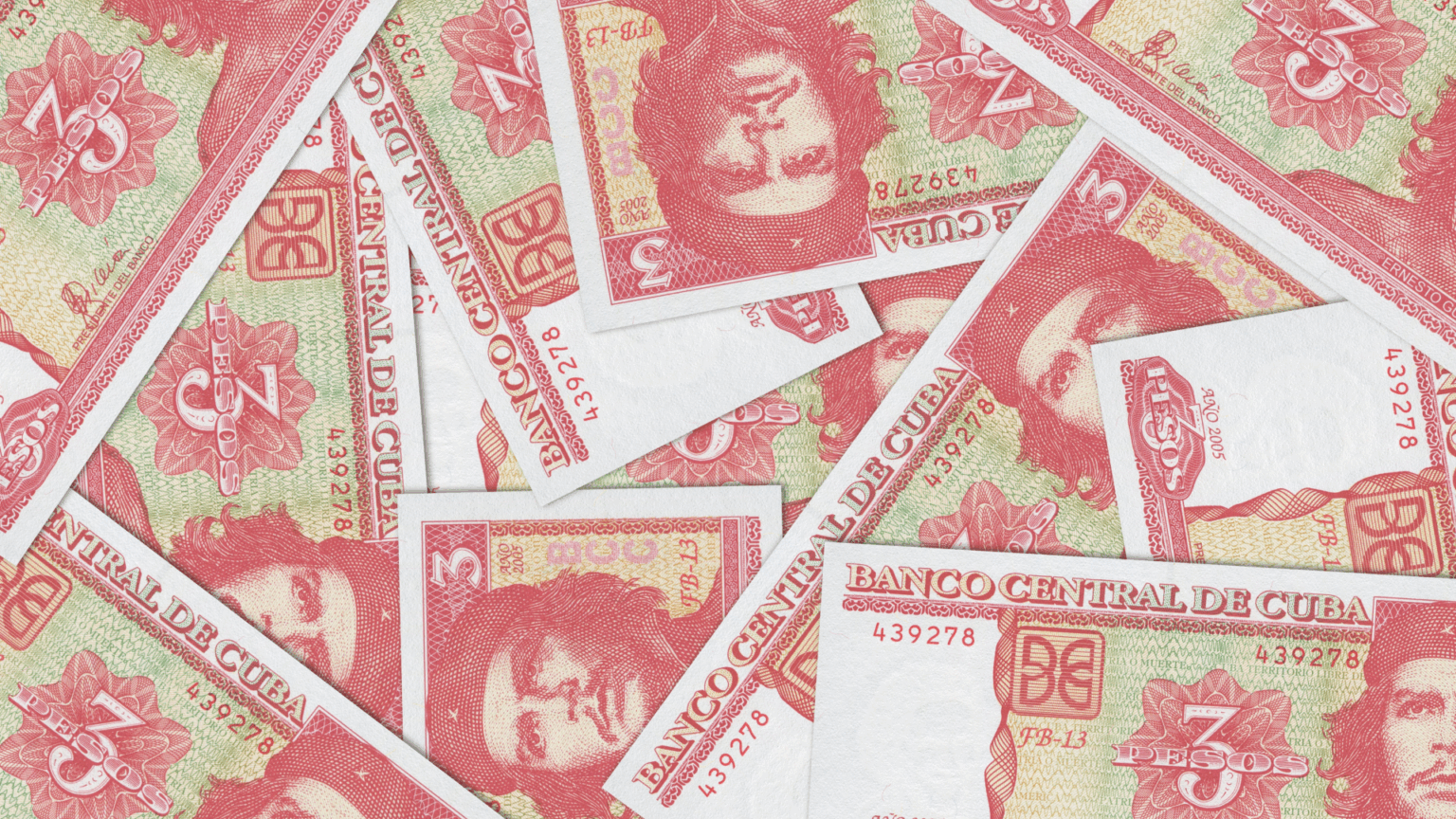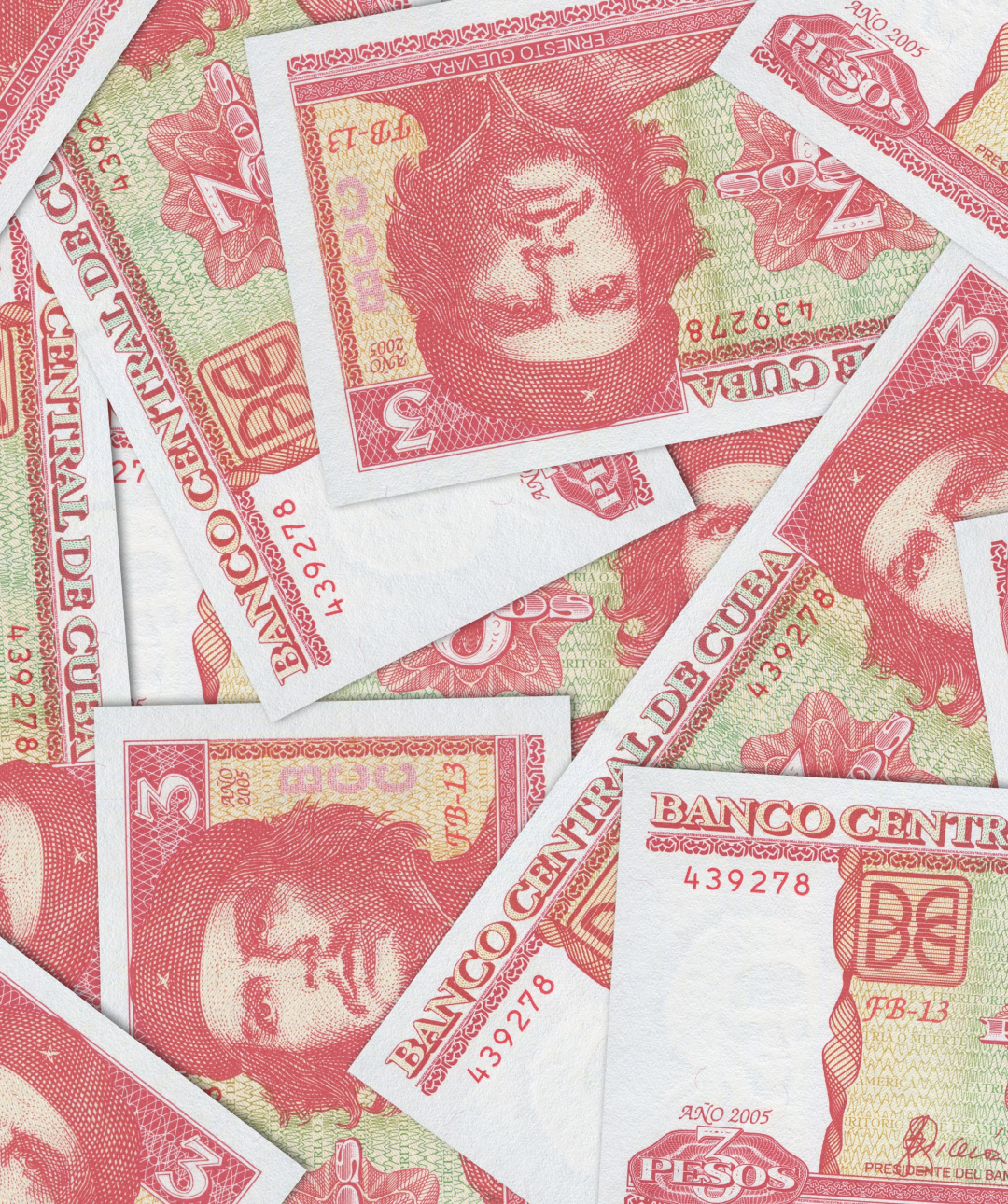Good morning, readers!
In Cuba, the peso’s parallel market rate increased to 400 pesos per US dollar, a record low reflecting a 94% devaluation in just a few years. High inflation, stagnant wages, electricity blackouts, and food shortages already define daily life in Cuba, so this depreciation has made the lives of Cubans suffering under that country’s communist party dictatorship even worse.
Meanwhile, Ethiopian financial officials froze the bank accounts of 138 people accused of trading foreign currency outside state-approved channels. Officials said suspects were identified through surveillance and warned that bypassing banks could result in imprisonment and asset seizures. The move reflects the regime’s effort to reduce foreign currency activity, consolidate financial control, and secure bailout conditions while they keep printing the local currency.
In freedom tech news, Ginger Wallet, an open-source Bitcoin wallet for desktop, added built-in CoinJoin functionality to improve user privacy. By enabling collaborative Bitcoin transactions, CoinJoin protects transaction data on the blockchain. For activists, it offers a shield against financial surveillance and authoritarian control.
We end with the latest edition of the HRF x Pubkey Freedom Tech Series, where Rwandan human rights advocate, Anaïse Kanimba, joins HRF’s Global Bitcoin Lead, Femi Longe, to discuss her story, securing the release of her father, and how it led her to embrace Bitcoin as a freedom technology.
Now, let’s get to the full stories.
Global News
Ethiopia | Freezes Bank Accounts of Individuals Using Foreign Currency
Ethiopia’s Financial Intelligence Service (FIS) froze the bank accounts of 138 individuals accused of engaging in “illegal foreign currency crimes.” Financial officials targeted foreign currency traders on the street, alleging that these individuals were operating “outside the country’s formal financial system” and “bypassing legal banking channels.” Officials identified the individuals through “ongoing [financial] surveillance efforts.” They emphasized that foreign currency transactions must be conducted “strictly” through the official banking system. In a statement to state media, the FIS warned that violations could trigger “severe legal consequences, including imprisonment and asset confiscation.” This comes alongside the Ethiopian regime’s broader effort to curb parallel market currency activity and tighten state control over cross-border financial transactions, even while it devalues its currency.
Cuba | Four Hundred Pesos to the Dollar
Cubans now pay 400 pesos for one US dollar on the parallel market. This marks a record low and reflects a 25% drop in value this year and a staggering 94% devaluation in just a few short years. This currency freefall has fueled Cuba’s broader cost-of-living crisis, where high inflation, stagnant wages, and shortages already define daily life. The Communist Party of Cuba has effectively dollarized much of the economy, requiring foreign currency for many goods and services, even as it forces wages to be paid in pesos. Essential imports (like food, medicine, and supplies) can only be bought with foreign currency, but nearly 40% of Cubans have no access to said currency. Those who do receive remittances in foreign currency often lose most of their value when forced to convert at the state’s artificially low official rate. “Here, almost everything is in dollars. Cuban money is worthless for buying food and barely anything else, and I don’t have a single dollar,” Cuban retiree Freddy Portillo said.
Tanzania | Court Bans Broadcasting of Opposition Trial
A Tanzanian court banned live broadcasting of opposition leader Tundu Lissu’s treason trial. Lissu, head of the leading opposition party CHADEMA, was arrested in April after calling for electoral reforms alongside a nation in unrest. His party has already been barred from October’s elections. The closed-door proceedings come amid a broader crackdown: Tanzania has outlawed foreign currency in everyday transactions, forcing citizens to rely on the depreciating shilling; blocked X and Telegram; and presided over high-profile kidnappings, including Ugandan journalist and Oslo Freedom Forum speaker Agather Atuhaire. Together, these measures strip Tanzanians of both political voice and financial autonomy and tighten the regime’s grip ahead of the polls.
Rwanda | Revives CBDC Plans
Rwanda’s central bank revived its retail central bank digital currency (CBDC), inviting citizens, companies, and startups to submit proposals through a national “ideathon” running until September. This follows five months of closed-loop CBDC tests with bank staff, merchants, and lenders, focused on legal frameworks and payment system integration. The central bank says the CBDC could improve financial resilience with offline and USSD access, support a “cashless transition,” and cut remittance costs. In practice, it would also hand dictator Paul Kagame sweeping controls over Rwandans’ financial lives and a tool to more easily abuse human rights. Kagame could leverage a CBDC to conduct mass surveillance of transactions, targeted account freezes, and censorship of payments to political opponents, independent media, and dissidents.
Pakistan | Develops Digital Rupee in Partnership with Soramitsu
The State Bank of Pakistan (SBP) is partnering with Japanese blockchain firm Soramitsu to pilot its digital rupee CBDC. The move comes after SBP Governor Jameel Ahmed’s announcement of a national pilot launch in July. Officials claim the currency will enable “cash-like” transactions in underserved and low-connectivity areas. At the same time, parliament is drafting a national bitcoin policy and reserve. The recently passed Virtual Asset Regulatory Authority (VARA) also grants sweeping oversight of all virtual asset providers and digital tools. Framed as financial technology progress, these steps arrive alongside rising internet shutdowns, online censorship, and expanded digital surveillance. In practice, the digital rupee and adjacent regulations equip a repressive state with the capacity to monitor transactions, block access to funds, and suppress dissent.
Recommended Content
HRF x PubKey: Surviving Genocide, Human Rights, and the Africa Bitcoin Institute
After surviving the Rwandan genocide at two years old, Anaïse Kanimba was adopted by Paul Rusesabagina, the man who saved 1,268 lives at his hotel, which was depicted in the film “Hotel Rwanda.” In 2020, after he was kidnapped and imprisoned by Paul Kagame’s regime, Kanimba launched the #FreeRuseabugina campaign, ultimately securing the release of her father. In this interview, she sits down with HRF’s Global Bitcoin Lead, Femi Longe, to discuss her story and how it led her to embrace Bitcoin as a freedom technology and launch the Africa Bitcoin Institute, a think tank providing research and policy recommendations for Africa. Watch the full interview here.
Bitcoin and Freedom Tech News
Ginger Wallet | Native CoinJoin Privacy Feature
Ginger Wallet, an open-source, non-custodial Bitcoin wallet for desktop, added a native CoinJoin functionality to strengthen activists’ financial privacy. Every Bitcoin transaction is recorded on the blockchain, giving authoritarian regimes the ability to track dissident financial activity. CoinJoin changes that. Mixing transaction inputs from multiple users into a single on-chain transaction can help dissidents gain an important layer of privacy, making financial surveillance more difficult. This means stronger privacy without a complex setup. Learn more about it here.
BTCPay Server | Integrates Cal.com
BTCPay Server, a free and open-source Bitcoin payment processor and HRF grantee, integrated Cal.com, an open-source scheduling platform. This integration lets anyone — individuals, businesses, or nonprofits — accept Bitcoin payments directly through their booking pages. By connecting a Cal.com account to a self-hosted or third-party BTCPay Server store, users receive funds straight to their wallets. No intermediaries, no platform fees, and no reliance on traditional payment processors. For dissidents under authoritarian regimes, this is more than a convenience. Scheduling and payments, two essential parts of activist work, are now censorship-resistant, more private, and globally accessible. And with this integration, they can accept Bitcoin directly into a self-hosted BTCPay wallet, bypassing both banks and third-party platforms that can censor.
Block Inc. | Introduces Proto Rig and Fleet
Block Inc., a company co-founded by Jack Dorsey that works on permissionless financial tools, released its latest project: the Proto Rig. It’s a modular Bitcoin miner built for accessibility. It has easily swappable parts that can be replaced faster and used for much longer. The Proto Rig also comes with Stratum V2 built in. Stratum V2 enables miners to build their own block templates. This reduces reliance on large mining pools and contributes to Bitcoin’s censorship resistance. Alongside the new hardware, Block announced a free, open-source software called Proto Fleet that helps people run all their Bitcoin miners on one platform. These tools lower the barrier to entry to bitcoin mining, making it easier for dissidents and individuals to contribute to and strengthen Bitcoin’s decentralization and freedom properties that many of them ultimately rely upon to continue their work.
Ark Labs | First Real-World Deployment of Ark
At the Baltic Honeybadger conference in Riga, Latvia, Ark Labs showcased Ark, a protocol designed to scale Bitcoin’s transaction capacity, by testing it with conference participants. Ark can make transactions faster, cheaper, and more private by processing transactions off the main blockchain. But non-custodial funds can expire if not spent. During the event, attendees paid with Lightning as usual, but Ark powered the transactions behind the scenes. This was Ark’s first mainnet deployment. It offers a glimpse of how activists and dissidents might one day use Ark to achieve low-cost and accessible Bitcoin payments, even as demand for Bitcoin transactions grows. This milestone brings Ark closer to real-world adoption. Learn more technical details about the experiment here.
BPI India | Launches to Promote Bitcoin Policy and Financial Freedom
On Aug. 15, India’s Independence Day, the Bitcoin Policy Institute of India (BPI India) officially launched. Founded by Mithilesh Kumar Jha and Avi Burra, it is India’s first Bitcoin-focused think tank and policy advocate. It will support Bitcoin as a strategic tool to strengthen Indians’ financial freedom, providing research and education to policymakers, regulators, and the public to develop a policy framework. This comes at a critical time. The Indian government under Prime Minister Narendra Modi increasingly uses financial repression to target political opposition while the central bank expands its CBDC, the digital rupee. BPI India hopes to make the case for open, decentralized alternatives.







